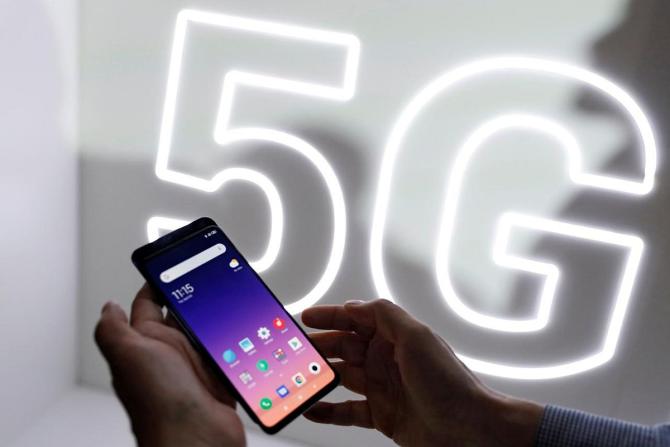The announcement quells fears among some telcos that Chinese players might be banned from participating in 5G trials and roll outs.

In a new twist to the saga over whether Chinese companies Huawei Technologies and ZTE can supply telecom gear, Minister of State for Electronics and Information Technology Sanjay Dhotre said the government had no plan to exclude them from 5G network infrastructure contracts.
Dhotre was giving a written reply to MPs’ queries in Parliament on Wednesday.
The announcement quells fears among some telcos that Chinese players might be banned from participating in 5G trials and roll outs.
The department of telecommunications (DoT), while deposing before the IT parliamentary committee, had said a final decision on their fate would be taken by the home ministry.
As a result, leading Indian telcos, taking their cue from the DoT, put in additional applications for collaboration with OEMs in cities where they had already given applications based on tie-ups either with Huawei or ZTE for 5G trials.
The telcos put in additional applications against the backdrop of growing escalation in border tensions between India and China, accompanied by a strong movement to ban Chinese products.
Even before the border skirmishes started, India had been under pressure from the US, which is campaigning across the world to ban the use of Chinese 5G gear on the grounds that it is allegedly used for spying.
However, despite banning various popular Chinese apps, neither the DoT nor any other government department clarified its stand on Chinese telecom equipment companies.
Telcos say they had been willing to withdraw the applications they had made with the Chinese companies if the government had communicated its intention clearly but with no clear signal, they decided to put in additional applications.
So, for example, according to sources, Huawei had tied up with Airtel and Reliance Jio in Bengaluru and with Vodafone Idea in Delhi. ZTE had tied up with Airtel for Kolkata.
But in July, the telcos felt compelled to give fresh applications in most of these cities, this time with Nokia, Ericsson or Samsung. For instance, Airtel gave an application with Ericsson in Bengaluru and with Nokia in Kolkata.
Reliance Jio, which had tied the knot with Huawei in Bengaluru, gave an additional application that it would do trials based on its own 5G technology, something it is already doing in Mumbai (where it also has an application with Samsung).
“Many of the telcos have given additional applications, but the original applications have not been withdrawn. So we are still hopeful that it is not the end,” said the executive of a leading Chinese gear maker.
Despite Communications Minister Ravi Shankar Prasad promising in June 2019 that the government will give 5G spectrum for trial runs in 100 days, telcos say they are still waiting for the green signal.
In the same month, the Wireless Planning & Coordination Cell (WPC) released a memorandum defining the scope of 5G technology trials with the aim of regulating licences. In line with this, the WPC was readying to allocate spectrum to telcos which had made requests in the 850 MHz, 3500 MHz and 26 GHz bands for the 5G trial runs.
However, the DoT raised concerns about the need to get security clearances before a telco could conduct 5G trials. Many telcos submitted applications for security clearances but heard nothing for a while.
In December, the DoT had a meeting with telcos and asked them to file applications by 15 January 2020. Later, the telcos were called, along with their OEM partners, for a presentation in the DoT on 20 January.
Meanwhile, apart from the new additional applications, Reliance Jio announced that it had developed its own 5G technology in July.
Two days after the announcement, it asked the DoT for trial spectrum to test its technology in the 3500 MHz and the millimeter band for two years in Delhi and Mumbai.
In its earlier application, it has made a request to test its own technology only in Mumbai.











 © 2025
© 2025